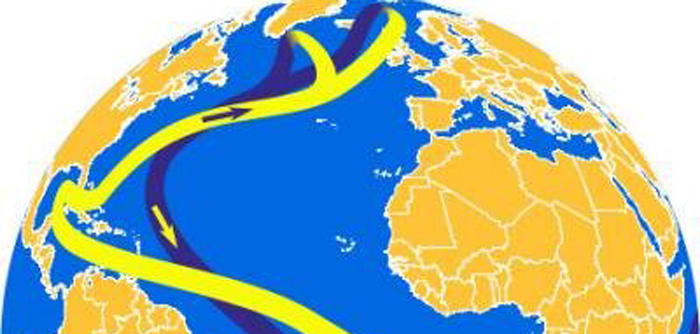Dutch researchers say the ocean currents that help keep the climate in northwestern Europe relatively mild could stop temporarily in the next century.
The research team from the University of Groningen and Utrecht University says interference to the North Atlantic Current would be due to the effects of meltwater from Greenland and excessive rainfall.
According to their simulations, the current is unlikely to be stopped completely. But they said there was a 15% chance that in the next 100 years it could be halted temporarily. Previous research has already established that Atlantic Ocean currents are sensitive to the amount of freshwater at the surface.
Since freshwater run-off from Greenland’s melting glaciers is increasing due to climate change some scientists have suggested that the North Atlantic Current is in danger of slowing down or reversing, with the likely result being temperatures much lower in northwestern Europe.
To test the likelihood of this scenario, staff at Utrecht University created a box model to estimate the likelihood of small fluctuations in freshwater input causing a temporary slowing down or a total collapse of the current.
Since the current’s behavior is non-linear small changes can have large impacts. In order to find out what these impacts might be multiple simulations needed to be run.
“As the transitions we were looking for are expected to be rare events, you need a huge number of simulations to estimate the chance of them happening,” said University of Groningen Associate Professor in Numerical Mathematics Fred Wubs.
Fortunately for Wubs and his team a method had already been devised for selecting the most promising simulations, thereby reducing the number of full simulations that needed to be carried out.
The simulations showed that “the chances of a total collapse of the North Atlantic Current within the next thousand years are negligible”, Wubs said, adding that a temporary interruption was much more likely. However, the model did not take in to account the large-scale changes in freshwater in the North Atlantic which could result from the melting of the Arctic ice sheets.
“Confirming our results through simulation with a high-resolution climate model will be the next challenge,” Wubs said.



